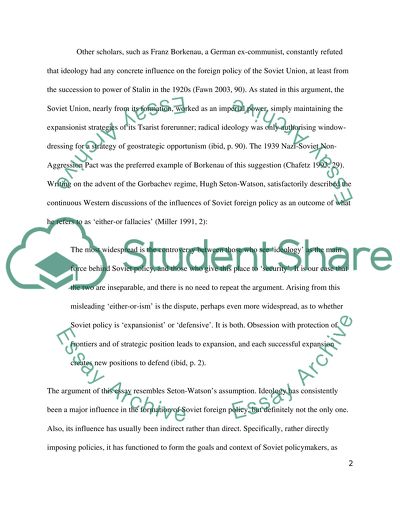Cite this document
(“The influence of ideology on the formation of Soviet foreign policy Essay”, n.d.)
Retrieved from https://studentshare.org/history/1404830-the-influence-of-ideology-on-the-formation-of-soviet-foreign-policy
Retrieved from https://studentshare.org/history/1404830-the-influence-of-ideology-on-the-formation-of-soviet-foreign-policy
(The Influence of Ideology on the Formation of Soviet Foreign Policy Essay)
https://studentshare.org/history/1404830-the-influence-of-ideology-on-the-formation-of-soviet-foreign-policy.
https://studentshare.org/history/1404830-the-influence-of-ideology-on-the-formation-of-soviet-foreign-policy.
“The Influence of Ideology on the Formation of Soviet Foreign Policy Essay”, n.d. https://studentshare.org/history/1404830-the-influence-of-ideology-on-the-formation-of-soviet-foreign-policy.


